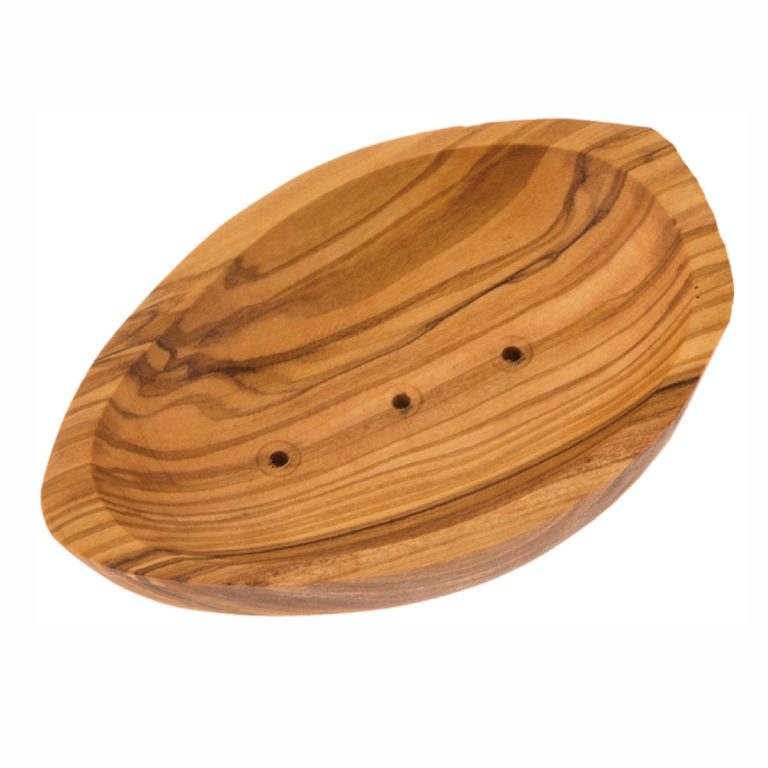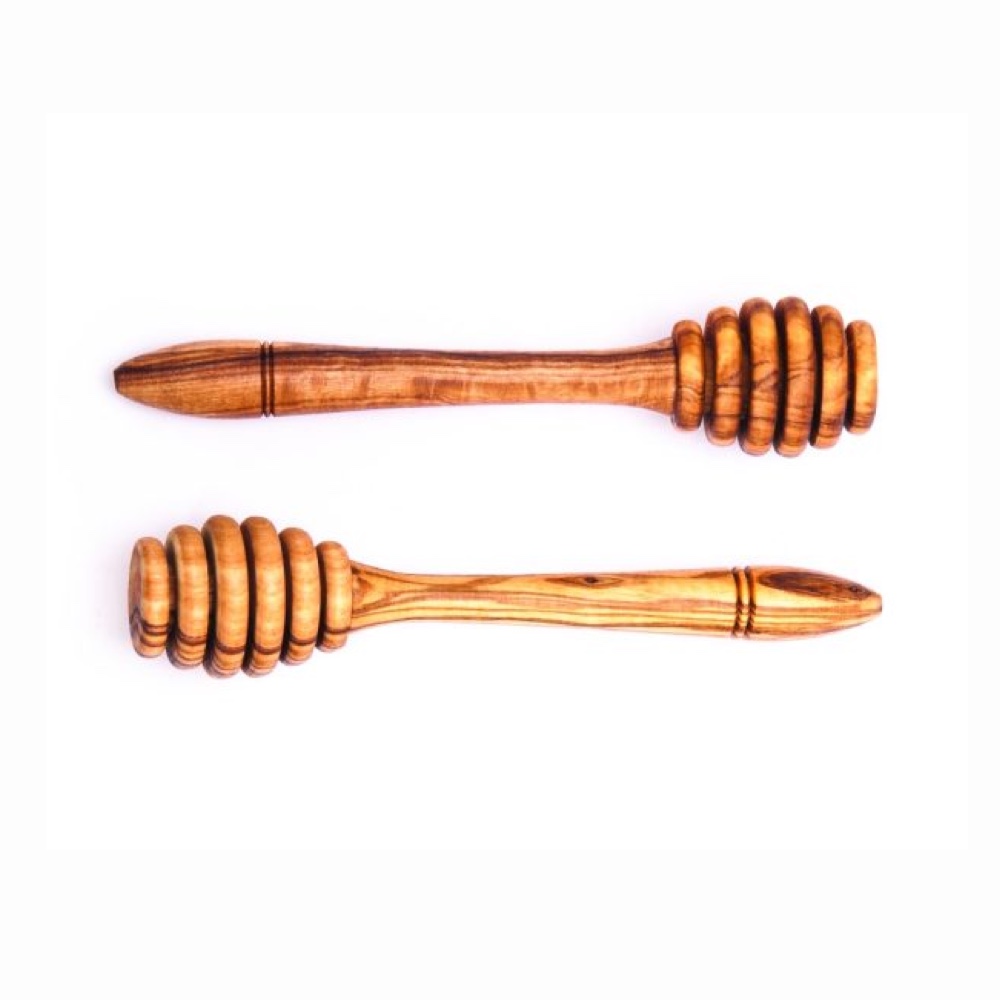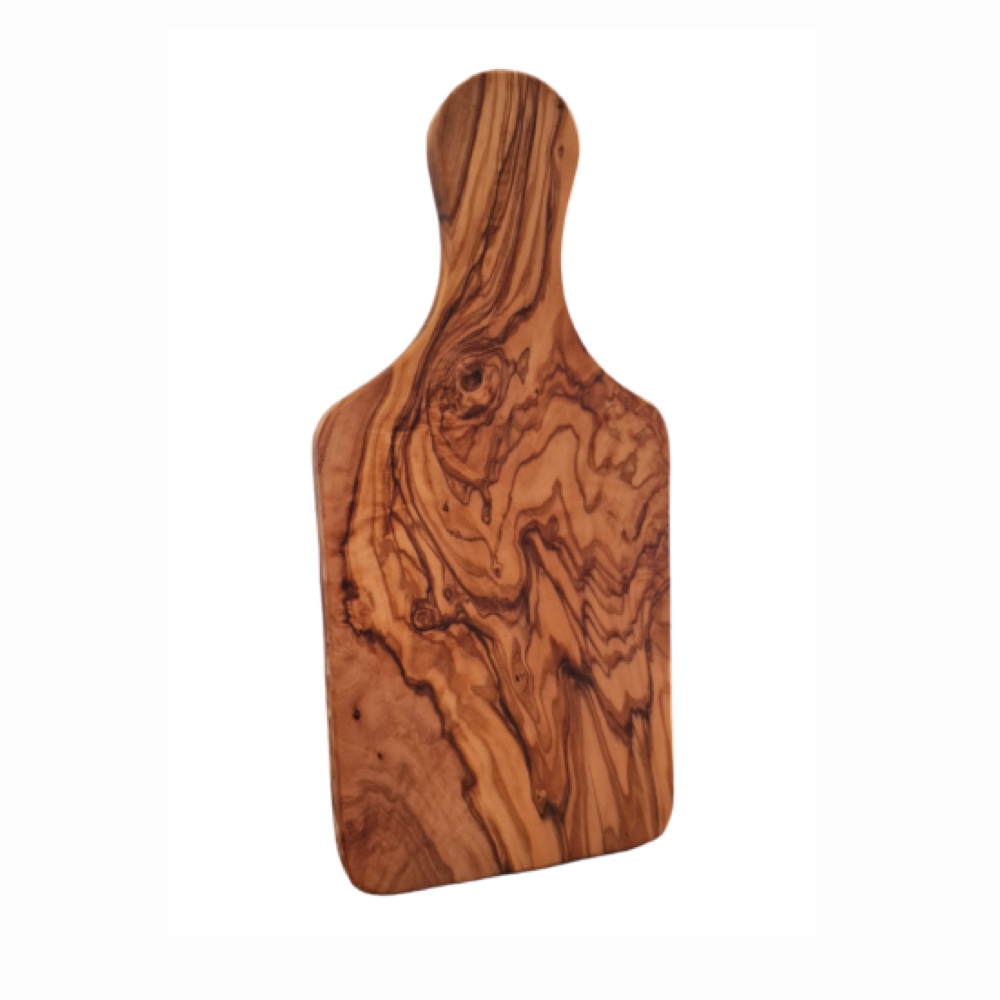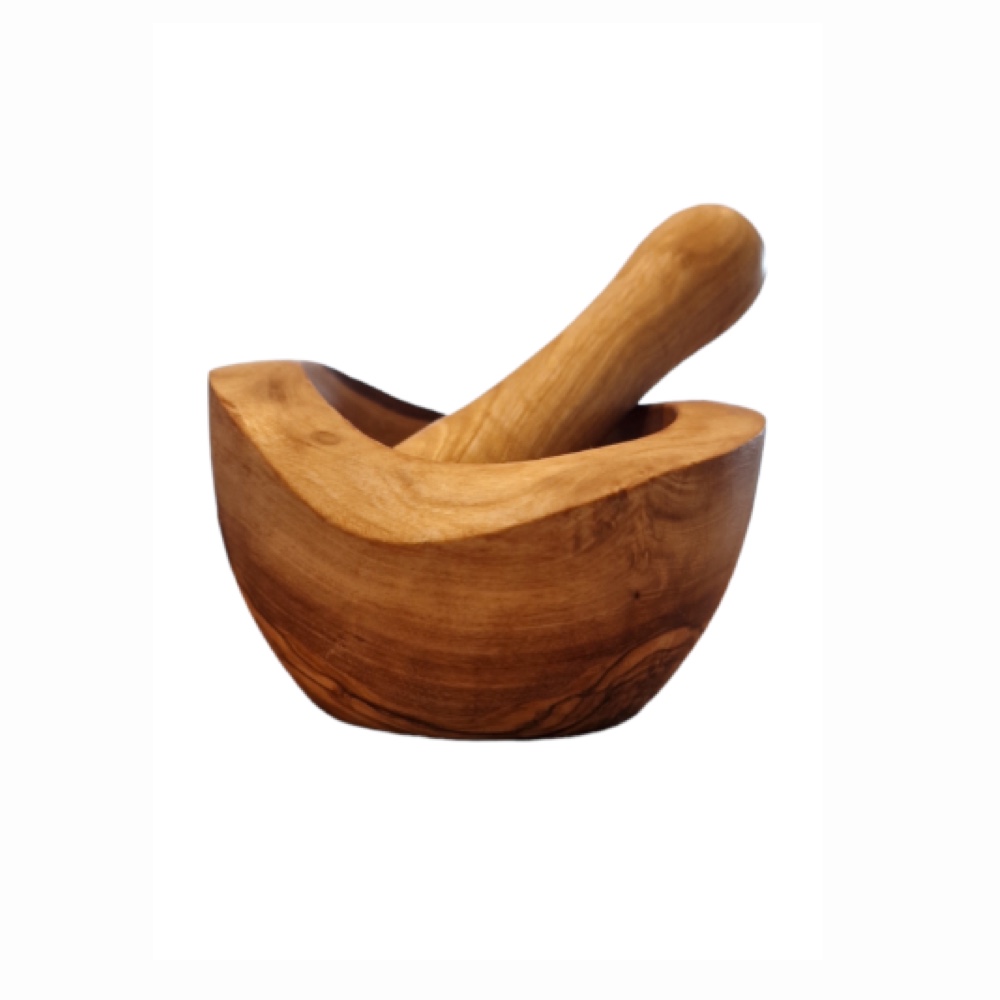
Greek Olive Wood: A Noble Material for Authentic Cookware
Olive wood, renowned for its beauty and durability, is an emblematic material of Greece and a mainstay of Greek craftsmanship. It has been used for centuries to create a wide range of kitchenware. The wood comes from the thousand-year-old olive trees that dot the Greek landscape. Thanks to its unique texture and distinctive grain, it is perfect for making kitchen utensils such as wooden spoons, forks, cutting boards, bowls, spatulas and ladles.
Each piece pays homage to traditional Greek craftsmanship and the sacred Mediterranean tree. By adding these items to your kitchen, you invite a touch of authenticity and history into your everyday life. Not only functional, these utensils also decorate your culinary space with elegance.
The History of Olive Wood in Greece: An Ancestral Tradition
The use of olive wood in Greece dates back to ancient times. The ancient Greeks saw the olive tree as a symbol of peace, wisdom and prosperity. Even then, craftsmen were already shaping this wood to create everyday objects as well as decorative and religious pieces.
Today, this tradition lives on. Wood, particularly olive wood, is still prized for its robustness and deep cultural significance. Each olive wood object tells a part of Greek history, shaped by expert hands perpetuating an ancestral know-how.
By integrating these pieces into your daily life, you connect with a rich history and enduring craftsmanship. These unique creations are not only functional, they are also a tribute to Greek culture and heritage.

Characteristics of Olive Wood: A Unique Material
Olive wood is distinguished by its density, strength and longevity. Naturally hard, it resists cracking, making it an ideal choice for everyday kitchen utensils.
The grain of this wood is easily recognizable, with swirling patterns and contrasting veins. These variations make each piece unique, adding character to your kitchenware.
What’s more, it has natural antibacterial properties. This makes it a hygienic material, ideal for food preparation. By choosing olive wood utensils, you’re opting for a product that’s both aesthetically pleasing and practical, enhancing your culinary experience.
Artisanal production of olive wood utensils
Making utensils from olive wood is an art requiring precision and expertise. Craftsmen carefully select the wood according to its quality. Then they cut, shape and sand it by hand to create harmoniously shaped utensils.
Every step of the process is carried out with great attention to detail. This ensures that each item is both functional and a true work of art. What’s more, this artisanal method preserves the natural characteristics of the wood, such as its texture and unique pattern. As a result, each piece tells a story and reflects the heritage of Greek craftsmanship.
Olive Wood Utensils: An Ecological and Sustainable Choice
Olive wood is a renewable resource, and utensils made from it are an environmentally-friendly choice. Craftsmen generally use pruned branches or trees no longer bearing olives, rather than felling olive trees. This process respects the environment and preserves the trees.
By choosing these utensils, you are supporting sustainable production. What’s more, you’re contributing to the conservation of these emblematic trees of the Greek landscape. Every item you choose helps preserve this traditional know-how and the ecosystem that surrounds it.

The Different Types of Olive Wood Utensils
Olive wood is perfect for creating a variety of kitchen utensils. Olive wood spoons and forks are ideal for mixing and serving without scratching your pots and pans. In addition, olive wood cutting trays are both sturdy and aesthetically pleasing, suitable for cutting and serving.
Olive wood bowls, spatulas and ladles add a rustic touch to your kitchen, while remaining highly functional. Each utensil takes advantage of the unique properties of olive wood, combining beauty and durability. By integrating these items into your kitchen, you’re choosing authenticity and traditional craftsmanship.
The Health Benefits of Olive Wood Utensils
Olive wood utensils are not only environmentally friendly, they also offer health benefits. Unlike plastic utensils, wood releases no chemicals when heated. What’s more, it has natural antibacterial properties, making it a hygienic choice for food preparation.
Using olive wood utensils allows you to cook in a healthier way, while enjoying the beauty and functionality of this natural material. So, by choosing these utensils, you’re promoting a healthy, environmentally-friendly approach to cooking.
How to Care for Your Olive Wood Utensils
To preserve the beauty and durability of your olive wood utensils, good care is essential. Start by washing them by hand with lukewarm water and mild soap. Avoid soaking them in water, as this may damage them. After each wash, dry immediately with a soft cloth to avoid dampness.
To nourish the wood and restore the shine of your utensils, regularly apply a thin layer of edible oil, such as olive oil. This prevents the wood from drying out and prolongs its life.
With proper care, your olive wood utensils can last for decades while retaining their natural beauty.
Olive Wood and Local Crafts: Supporting the Greek Economy
Buying olive wood products means supporting local craftsmanship and the Greek economy. Many artisans depend on the manufacture and sale of these products for their livelihood. Each piece of olive wood is carefully crafted and embodies a part of Greece’s cultural heritage.
By opting for handcrafted products, you help preserve traditional know-how. What’s more, you get high-quality items that add a touch of authenticity to your kitchen. In this way, every purchase contributes to the vitality of the artisan community and the transmission of cultural heritage.

A Sensory Journey Through Greek Craftsmanship
Olive wood utensils are more than just kitchen tools. They embody a rich history and meticulous craftsmanship handed down from generation to generation. Each piece invites you to explore Greece, with its natural heritage and ancestral traditions.
By using these utensils in your kitchen, you integrate a part of this culture into your everyday life. What’s more, you benefit from the durability and timeless aesthetics of Greek olive wood. In this way, each utensil becomes a tangible link with Greece’s artisan heritage.
| Greek recipes | Greece | Greek Products | Producers and Artisans | Must-sees in Greece | Knossos Palace | Odeon of Herod Atticus | Acropolis | Extra virgin olive oil | Skiathos | Kefalonia | Hydra | Milos | Temple of Apollo | Paros | Lesvos | Recipe of saganaki | The Tarama | Recipe of Keftedes | Greek yogurt | Recipe of Tarama | Rhodes | Thessalonica | Figs | Greek honey |




